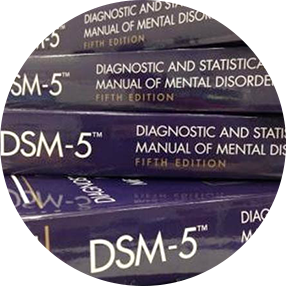Conduct Disorder
What is conduct disorder in children?
Conduct disorder is a type of behavior disorder. It’s when a child has antisocial behavior. They may disregard basic social standards and rules. They may also:
Be irresponsible
Skip school or run away (delinquent behavior)
Steal or do other things to violate the rights of others
Physically harm animals or other people, such as committing assault or rape
These behaviors sometimes happen together. But one or more may occur without the others.
What causes conduct disorder in a child?
Experts believe that many factors play a role in conduct disorder. These are:
- Brain damage
- A traumatic event
- Genes
- Child abuse
- Past school failure
- Social problems
Some children with conduct disorders seem to have a problem in the frontal lobe of the brain. This interferes with a child’s ability to plan, stay away from harm, and learn from negative experiences.
Some experts believe that a series of traumatic experiences occurs for a child to develop a conduct disorder. These experiences then often lead to depressed mood, behavior problems, and involvement in a deviant peer group.
What are the symptoms of conduct disorder in a child?
Most symptoms seen in children with conduct disorder also happen at times in children without this problem. But in children with the disorder, these symptoms occur more often. They also interfere with learning, school adjustment, and sometimes with the child’s relationships.
Each child’s symptoms may vary. But the 4 main groups of behaviors are described below.
Aggressive conduct
- Intimidating behavior
- Bullying
- Physical fights
- Cruelty to others or animals
- Using a weapon
- Forcing someone into sexual activity, rape, or molestation
Destructive conduct
- Intentionally destroying property (vandalism)
- Arson
Deceitfulness
- Lying
- Theft
- Shoplifting
- Delinquency
Violation of rules or age-appropriate norms
- Not going to school (truancy)
- Running away
- Pranks
- Mischief
- Very early sexual activity
These symptoms may look like other mental health problems. Have your child see his or her healthcare provider for a diagnosis.
How is conduct disorder diagnosed in a child?
A child psychiatrist or qualified mental health expert can diagnose a conduct disorder. They will talk with parents and teachers about the child’s behavior and may observe the child. In some cases, your child may need mental health testing.
If you notice symptoms of conduct disorder in your child or teen, you can help by seeking a diagnosis right away. Early treatment can often prevent future problems.
Dr. Fogelson will help you understand the origins of your child’s conduct disorder and will tailor a treatment program for them.
Contact Dr. Fogelson’s office to schedule an appointment to evaluate your conduct disorder.

